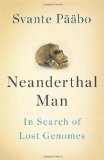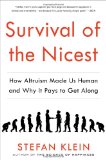new book – ‘Me, Myself, and Why: Searching for the Science of Self’ by Jennifer Ouellette
January 28, 2014
Me, Myself, and Why: Searching for the Science of Self by Jennifer Ouellette (Penguin, 2014)
Book description from the publisher:
A fascinating tour through the science behind who we are and how we got this way—from the author of The Calculus Diaries
As diverse as people appear to be, all of our genes and brains are nearly identical. In Me, Myself, and Why, Jennifer Ouellette dives into the miniscule ranges of variation to understand just what sets us apart. She draws on cutting-edge research in genetics, neuroscience, and psychology—enlivened as always with her signature sense of humor—to explore the mysteries of human identity and behavior. Readers follow her own surprising journey of self-discovery as she has her genome sequenced, her brain mapped, her personality typed, and even samples a popular hallucinogen. Bringing together everything from Mendel’s famous pea plant experiments and mutations in The X-Men to our taste for cilantro and our relationships with virtual avatars, Ouellette takes us on an endlessly thrilling and illuminating trip into the science of ourselves.
Google Books preview:
See also: Author’s website





